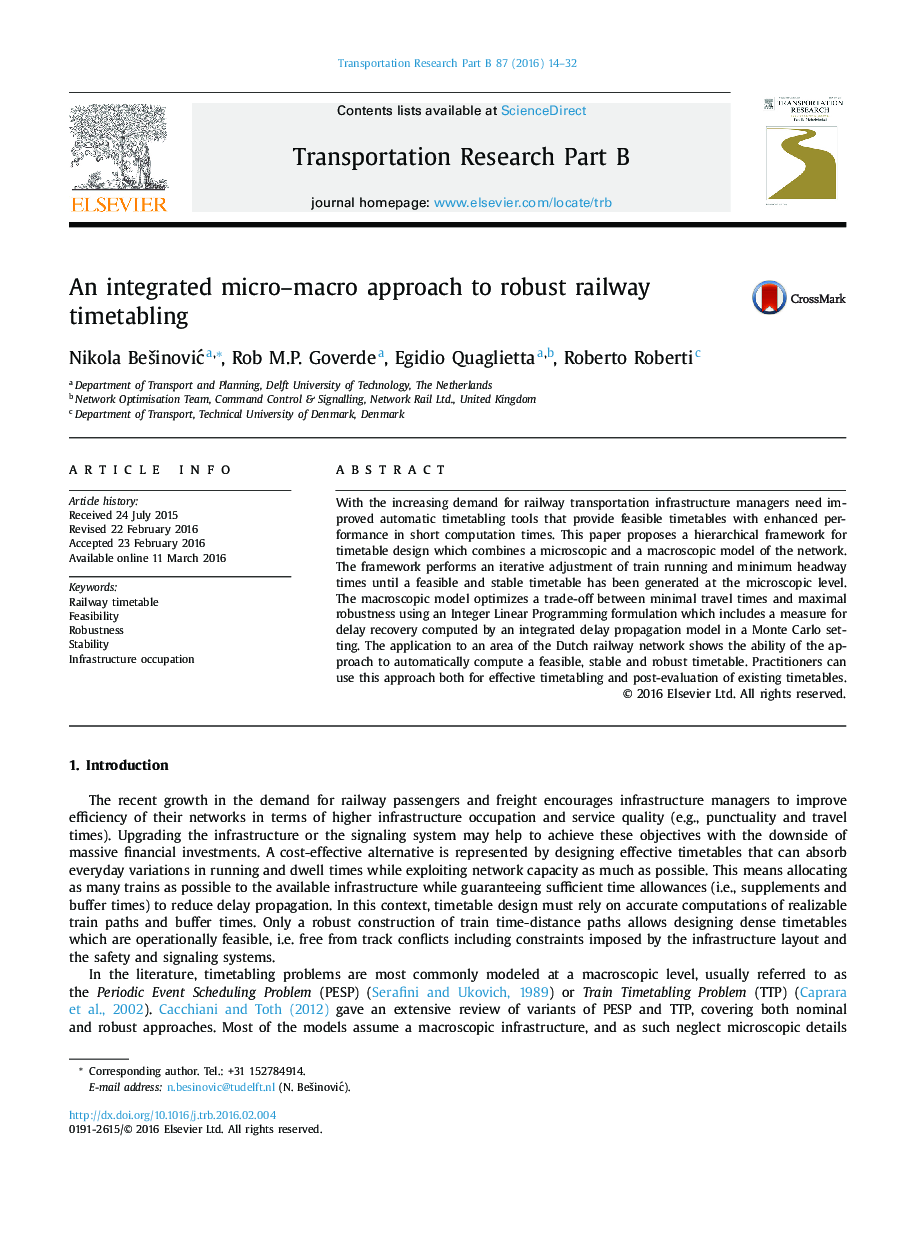| Article ID | Journal | Published Year | Pages | File Type |
|---|---|---|---|---|
| 1131586 | Transportation Research Part B: Methodological | 2016 | 19 Pages |
•We describe an integrated iterative micro–macro approach for computing an conflict-free, stable and robust railway timetable.•We provide bidirectional transformations between microscopic and macroscopic timetable models.•We define an automatic procedure to adapt macroscopic input by constraint relaxation and tightening methods.•The macroscopic timetable optimization model includes a post-processing Monte Carlo stochastic robustness evaluation.•The approach is demonstrated on a real network in the Netherlands.
With the increasing demand for railway transportation infrastructure managers need improved automatic timetabling tools that provide feasible timetables with enhanced performance in short computation times. This paper proposes a hierarchical framework for timetable design which combines a microscopic and a macroscopic model of the network. The framework performs an iterative adjustment of train running and minimum headway times until a feasible and stable timetable has been generated at the microscopic level. The macroscopic model optimizes a trade-off between minimal travel times and maximal robustness using an Integer Linear Programming formulation which includes a measure for delay recovery computed by an integrated delay propagation model in a Monte Carlo setting. The application to an area of the Dutch railway network shows the ability of the approach to automatically compute a feasible, stable and robust timetable. Practitioners can use this approach both for effective timetabling and post-evaluation of existing timetables.
